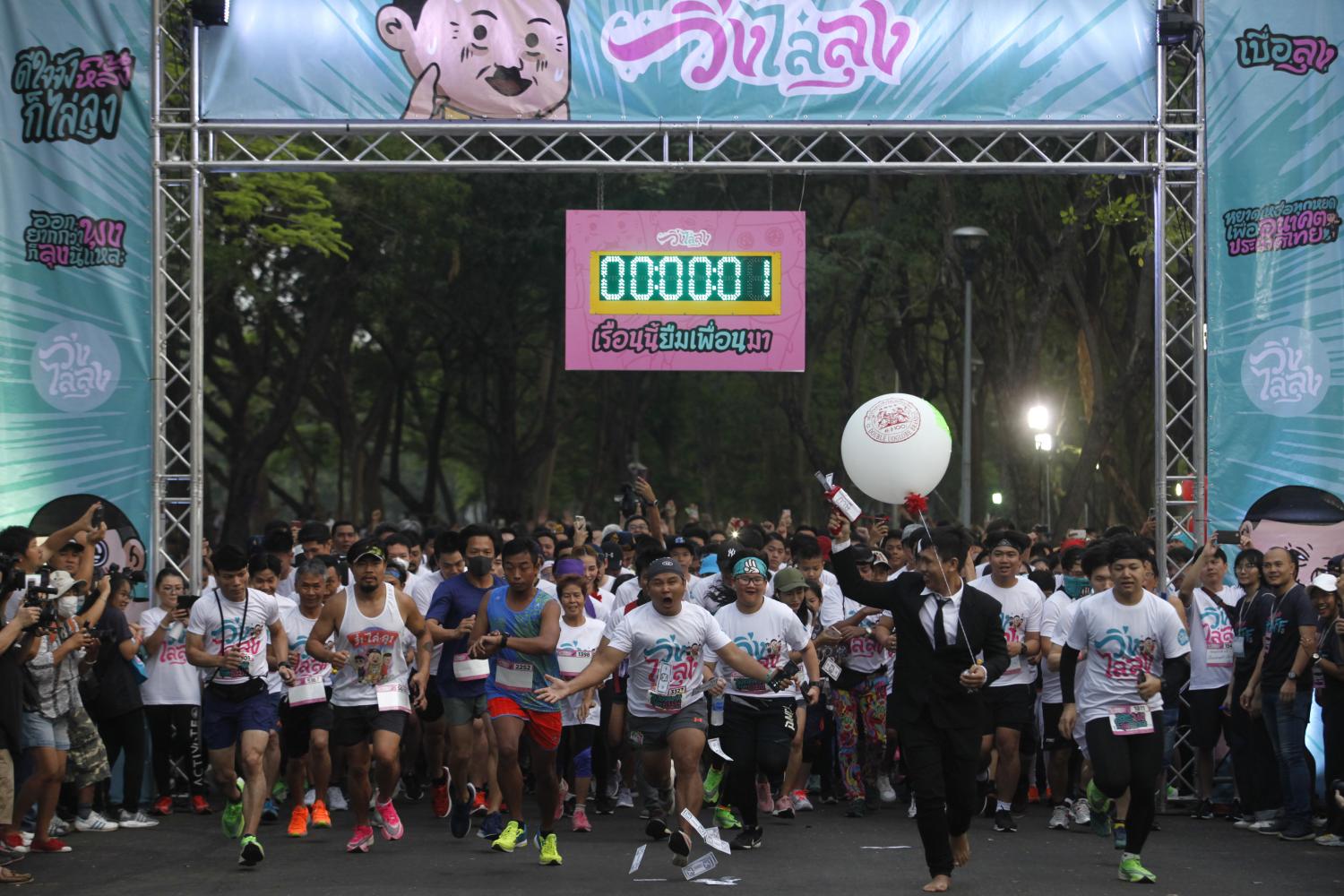
Never before has the sport of running become so politicised in Thailand. The recent Wing Lai Lung, "run against dictatorship", as a show of dissent against Prime Minister Prayut Chan-o-cha has taken Thai politics into a new frontier. While running has become a popular sporting medium for social causes and business-related outings over the past two decades, its new role as an outlet for political expression is attributable to Thailand's pervasive and entrenching repression. The anti-Prayut run was matched by a pro-Prayut "walk to cheer uncle", as the elderly prime minister is also known by his nickname as "Uncle Tu", highlighting Thailand's longstanding polarisation and portends tension and confrontation that could spell more trouble ahead without some kind of compromise and mutual accommodation.
Thailand is not alone to encounter a boom in running. Other Southeast Asian countries and beyond are into it as much. As people live longer with more means and information, they become more conscious of health and well-being, focusing on myriad sports and other exercises to keep in shape. As a result, sporting activities have become more sophisticated, diversified and stratified.
Running, for example, has been enjoyed as recreational jogging and shorter runs of 5 or 10-kilometres to half (21km) or full (42km) marathons and ultramarathons (100km), not to mention triathlons that add swimming and bicycling to the challenge. Well-heeled Thais have even taken their footraces to other countries with cooler and less punishing climates, as long-distance running in Thailand typically takes place before dawn to minimise heat.
While running in decades past was hardly recognised as a common sport in Thailand, it is now considered "cool" and "in trend", with a growing fashion and accessory industry to boot. Urbanisation, image-consciousness and new ways of social behaviour that derive from social media's spread and interaction have reinforced these trends. Never before has running been so cool.
Moreover, the popularity of running has boosted fund-raising and charity activities. Artiwara Kongmalai, lead singer of the rock band Bodyslam, ran across the country to raise hundreds of millions of baht for underfunded Thai hospitals that were neglected by the state. Specific runs have earned millions to support other causes, such as gender equality, elephant preservation and bed-ridden patients. No matter the social cause, running has become a tried and tested way of raising money and a sporting event for social bonding and networking.
The fusion of running with Thai politics is novel. The "run against dictatorship" coincides with a broad-based youth movement that has become fed up and tired of more or less authoritarian rule over much of the past two decades, characterised by political crises and military coups. An earlier youth-driven outlet was "rap against dictatorship", a music video from 2018 that has garnered more than 76 million views to date.
As more than half of Thailand's population is between 15 and 40, these younger people have seen much of their lives tied up with a country that has been conflicted and divided to its core, that is at a standstill and unable to move forward in an increasingly competitive world. In many ways, what these 20- and 30-somethings are doing is merely trying to take back their country, unwilling to entrust their future to the hands of Gen Prayut's generation of 60- and 70-somethings.
These younger voices happen to be the main electoral base of the Future Forward Party and its charismatic 40-year-old leader, Thanathorn Juangroongruangkit, himself a runner and triathlete. They have seen how Mr Thanathorn has been disqualified from parliament for owning media shares, with the likelihood of FFP's dissolution in a similar politically motivated charge. Their dissent is most commonly visible in social media. But keyboard activism and participation does not always convert into physical presence.
Running therefore provides the right touch for dissent. Although younger crowds of more than 13,000 flocked to the anti-Prayut run, older folks across Thailand's demographic profile also joined. They are not against just Gen Prayut but all that he stands for, from a manipulated constitution to perpetuate power and incompetent government to the double standards and lack of fair play. More broadly, as one young participant runner put it, "As a young adult, I feel that our country can go much farther than this, but why are we stuck here and why the people above us won't let us move farther and do better."
These calls from younger voices for a fairer and more horizontal Thailand based on popular rule, not an authoritarian order, should be taken by the conservative officialdom as a signal for adjustment and recalibration. Instead, officialdom responds with more repression and manipulation of law to pursue its aims. As a result, political tension will likely mount and old assumptions about how military coups and power plays like party dissolution can reset the scene may no longer hold.
Running against dictatorship is a runaway phenomenon. It may be slowed and stymied, even banned. But it will likely build as a political movement for a new kind of Thailand that can move ahead. It behooves the dictatorship to adjust, reform and compromise for its own self-interest at a time when it still has a lot of leverage.
Pavida Pananond, an avid runner, is associate professor at Thammasat Business School, and Thitinan Pongsudhirak teaches at the Faculty of Political Science and directs the Institute of Security and International Studies at Chulalongkorn University.